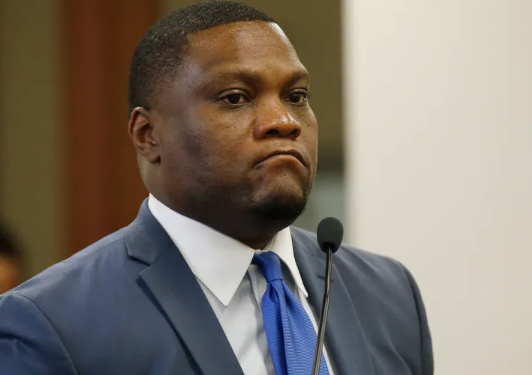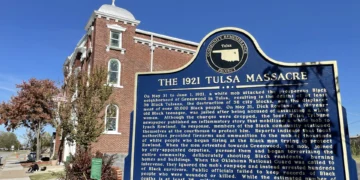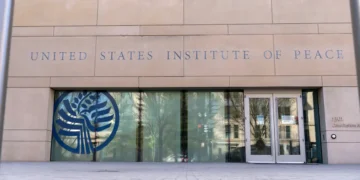Dec 5, 2024 Story by: Editor
Former Oklahoma state Representative Monroe Nichols has made history as the first Black mayor of Tulsa, pledging to address the city’s enduring legacy of racial injustice, including the 1921 Tulsa Race Massacre, which claimed over 300 lives. Among his priorities are improving Tulsa’s education system, increasing affordable housing, and exploring reparative measures for survivors and descendants of the massacre.
The 1921 tragedy, known as the Tulsa Race Massacre, devastated a thriving Black community in the Greenwood District, also called “Black Wall Street.” The Department of Justice recently launched a review of the massacre, though it remains uncertain whether this will lead to reparations for the affected families. Nichols supports addressing the ongoing pain of survivors, such as 110-year-olds Viola Fletcher and Lessie Benningfield Randle, and descendants but has yet to establish a firm position on reparations.
Nichols emphasized the need to focus on uniting the city while addressing historical injustices. “My election was a strong statement that Tulsans are ready to respectfully and meaningfully close a painful chapter in our city’s history and move forward together,” Nichols told HuffPost. He believes his role involves acting on the recommendations from the DOJ review and the city’s Beyond Apology Commission.
The commission, established under outgoing Mayor G.T. Bynum, has reviewed reports from 2001 and 2023 advocating for reparations. However, significant progress has yet to be made. Nichols highlighted education as a key area for investment, stating that it could offer a constructive pathway for reparations. “We’ve got to take this talk of reparations out of the political sense and focus on other areas,” he told the Associated Press.
Community voices, including longtime Tulsa resident Joyce Williams, have expressed cautious optimism about Nichols’ leadership. “I expect that he will attempt to provide ‘some means of compensation’ to descendants and survivors,” Williams said, emphasizing the need for ongoing community advocacy.
Damario Solomon-Simmons, director of Justice for Greenwood, emphasized that reparations must be a top priority for Nichols’ administration. “This has to be one of the things he does in the very beginning to move this issue forward,” Solomon-Simmons told HuffPost, noting the urgency of addressing the needs of the remaining survivors.
Despite setbacks, including the Oklahoma Supreme Court’s dismissal of a reparations lawsuit filed by Fletcher and Randle, Nichols remains committed to uniting Tulsa and acknowledging its history. “I know that I’m able to serve today because I stand on the shoulders of those who sacrificed for our community before, during, and after the race massacre,” Nichols said.
As Nichols begins his tenure, North and Black Tulsans are looking to him for action. Solomon-Simmons noted, “This is one of the reasons North Tulsans and Black Tulsans voted in such high numbers for Monroe. Because they believe he will do something that has never been done — to ensure reparations are implemented correctly.” Source: HUFF Post
















